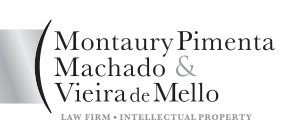The entire world is facing the biggest health crisis since the Spanish flu. In addition to the Covid-19 pandemic itself, we are living with access to a flood of information on the most complex topics, without having the necessary knowledge to immediately discern what is true, what is fake news and, even, what is half-truth. Half-truths include false statements that contain elements of truth and we may dare say that this is the worst type of information conveyed by the media, as it is a real disservice to the public in general.
If about a year ago the discussion regarding compulsory licenses was, once more, gaining its contours in Brazil and abroad, today the reality and urgency of vaccines turned the discussion into a hot topic. Industrial Property has become a relevant subject in political discussion and political advocates have taken over the discussion, imparting their biases, where political spin should never be the focus.
In addition to the discussion by the Brazilian Supreme Court about the unconstitutionality of the sole paragraph of Article 40 of the Industrial Property Law, which sets the 10 years minimum validity term of patents, reports have been circulating in the media indicating a supposed direct link between compulsory licenses and the acceleration of global vaccination.
This is the case for an affirmative that lists two legitimate issues that do not have a clear relationship (at least not yet). Rich countries, big pharmaceutical companies, and the patent system itself have been taxed as the “villains” in the delay of vaccination of the population in general.
This discourse not only confuses society, but also weakens two subjects whose discussion is extremely important in Brazil: the first, and most urgent, is the extremely low quantity of vaccines for Covid-19 in the country; the second is the debate about the influence of the patent system on public health.
Brazil has one of the most respected public health systems in the world and since it joined of the TRIPS agreement in 1994 (a necessary condition to be part of the World Trade Organization), our patent law has changed, allowing the patenting of pharmaceutical processes and products, among others. Since then, the discussion about how this temporary commercial exclusivity affects the public health system has not left the scene.
Nowadays, it is not the vaccine patents (called by some as “vaccine apartheid”) or access to doses themselves that limit vaccination. In Brazil, the biggest obstacles are, in fact, the shortage of doses, as well as the shortage of raw materials and the small production capacity of vaccines in the country.
Although the production capacity refers to the quantity of doses produced, it is important to mention that the ability to produce also needs to be considered, since the technology involved in the production of vaccines can be extremely complex.
There is a certain illusion that once a patent is compulsory licensed, any pharmaceutical company would have what it takes in terms of knowledge and structure to produce large amounts of safe and effective doses. There is an even worse illusion that vaccine developers would not receive any royalties in return.
However, it is not that simple.
The production of a vaccine involves several of complex steps and advanced specific technical knowledge. Thus, there must be a good technology transfer process between the company that developed the vaccine and the company or institution that will carry out the production. The more complex and innovative the vaccine is, the more complicated the transfer of technology.
In this sense, it is extremely important to highlight the opinions of those involved in the production of the only two vaccines currently produced and made available in Brazil: Dimas Covas, director of the Butantan Institute, responsible for Coronavac, and Mario Moreira, vice president of Management and Institutional Development at Fiocruz, responsible for the Astrazeneca vaccine.
On April 8, 2021 both representatives attended the meeting of the Covid-19 Commission in the Senate to debate the transfer of technology in the production of vaccines in Brazil. Both Dimas Covas and Mario Moreira categorically affirmed that the compulsory license of patents does not solve the issue of the shortage of vaccines in the country and, according to Covas, it may represent an even greater obstacle for Brazil.
Furthermore, Moreira explained that both agencies are at their production limit, emphasizing the limitation arising from the lack of API (Active Pharmaceutical Ingredient). The Fiocruz representative also mentioned the importance of diplomacy at that time, especially regarding the possibility of increasing the volume of API purchases.
In addition, both representatives of Fiocruz and Butantan drew attention to the fact that the collaboration of the company that developed the technology is essential for the production of a vaccine by other companies to be carried out safely and effectively.
In the case of Fiocruz, for example, even with a bilateral agreement with Astrazeneca - through which access to all the necessary documents was made available - the time it takes to internalize the technology is approximately 6 to 8 months. This is because the patent is just one of the secrets behind these complex technologies, which involves protection by know-how and industrial secrecy.
However, despite the opinion of the representatives of Fiocruz and Butantan, on April 29th, the Senate approved the proposal of Bill 12/2021 that authorizes the Brazilian government to decree the compulsory license of vaccines patents, diagnostic tests and medicines for Covid-19, under the pretext that such measures would speed up the immunization process.
Compulsory licensing is an exceptional measure and, therefore, extreme, which is why this measure has been applied in Brazil only once since 1996. However, although it is not necessary to compare the current situation of vaccines, with what happened in 2007 with the drug Efavirenz (used treatment of HIV), since each situation contains its own challenges and peculiarities, some people still do so, preferring to reduce all complexity and exceptionality of the system to a “mere suspension of patents”, as if it were simple.
The Brazilian Patent law, in Articles 61 to 63, already provides the granting of compulsory license, for specific situations, such as situations of national emergency or public interest, which is the present case. Even so, the compulsory license is only decreed after many conversations and attempts to adjust the price between the government and the patent holder, and the payment of royalties will inevitably continue to occur.
In short, in spite of decreeing the compulsory license of a patent being a quite simple process, it does not mean that the technology will be easily available for any interested company to produce and commercialize it, nor free of charge (as a part of the media have been falsely claiming). Such an alternative must be considered for future occasions; however, it is certainly not the solution to the obstacles faced in Brazil today. Moreover, considering that the current patent law already provides the compulsory license, there is no need for the Brazilian Congress and Senate to work to create a law that, in general, is already present in the legal structure in force.
Innovation and technological development driven largely by the patent system are very important players in the development of vaccines against COVID-19 in a record period and having a good patent system in place should be seen as a great incentive to innovation. It is this system that guarantees temporary exclusivity to its patentees and enables great exchange and dissemination of technical knowledge. Without it, many companies would choose to keep their technologies confidential, and the general population would be the most affected.
Source:






